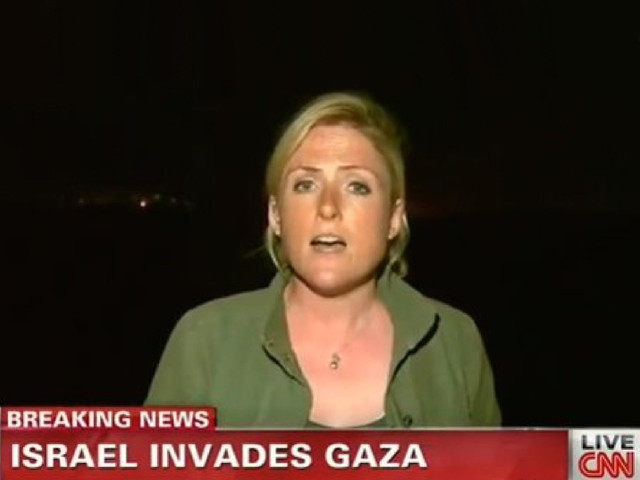We have had journalists moving away from the camera because they felt too overwhelmed with grief. There are allegations of ‘biased and unbalanced’ coverage by the media, depending on which side of the divide you are. In the current context, as the anti- Israeli voices are becoming more strident because of the information about the happenings there, with social media playing a huge role, many lines are becoming blurred.
A case in point is the reaction of CNN reporter Diana Magnay, who was covering the Israelis cheering the bombardment of Gaza from a hilltop in Sderot. While she described what she saw, and did use words like ‘awful’, that is not what earned the ire of the Israelis, but her subsequent personal tweet, in which she used the word ‘scum’ for those Israelis at that hillock who had actually threatened her for reporting.

While the tweet was removed within minutes due to the uproar it caused, the fracas resulted in CNN pulling her out of Israel and sending her to Moscow.
Was she wrong in expressing her opinion?
Was it an inappropriate venting of her anger at the treatment she received, something she could not have done as a reporter while representing CNN on air?
While on Twitter, was it acceptable to shed the CNN persona and become Diana Magnay again to express what she felt?
New media may have brought about a blurring of the lines where your official and personal identity is juxtaposed. This is not a comfortable situation, but not one that reporters in the traditional, mainstream media have had to face. The puritans have maintained that the reporter must not step in, not even to help, and just report whatever is happening.
Professionally, this benchmarking absolves them of the responsibility of being present in a situation where they could have done something but didn’t. But does that let them get away scot free? Or do they suffer from pangs of guilt? In journalism, trainings where such questions are posed to the trainees, the example of Kevin Carter, the renowned photographer is cited, and not at all in a judgmental manner. His picture of an African child dying of starvation with vultures hovering in the background won him the Pulitzer Prize. However, he ended his life three months later, tormented by the criticism for not helping her and wondering about her fate.
At the other end of the scale, there were the reporters in Palestine who risked their own lives to help a young injured child and removed her from the line of fire. They too, however, were questioned by their own fraternity of whether they had over stepped the line.
In our own country, we have been through some major disasters, natural and human-induced. The coverage had brought similar criticism when moving images of people breathing their last breath on screen, in front of the camera crew. Similarly, there had been criticism of media teams going in well stocked with provisions into impoverished areas.
We are quick to criticise but must bear in mind that all segments do have their own sphere in which to operate, and are actually trained and equipped to do so. But that is as far as actions beyond the call of duty are concerned. That call will be answered by each individual according to his or her own conscience.
But as in the case of Diana Magnay, did she really transgress the boundary? Do all reporters who put in a dash of opinion by using adjectives violate the parameters of reporting and step into the domain of opinions giving and analysis? Condemnation or commending of something obviously deserving of that actually compromises their position as a reporter?
It all boils down to the evolving roles, when they extend their presence into the cyber world. Even posting something from a personal account is then questioned as it is seen as reflective of the stance of the media house they belong to.
Journalists belonging to media organisations that have developed a clear social media policy are less likely to run into such problems as there the disclaimer between the official and personal is stated very emphatically.
Within the consumers of the media too, a greater clarity needs to be developed of the difference between a reporter and an analyst. This can only be done by the media fraternity itself by adhering to the universally acceptable norms in the way content should be delivered.
Until that is done, expect more of this blame game and finger pointing.



COMMENTS
Comments are moderated and generally will be posted if they are on-topic and not abusive.
For more information, please see our Comments FAQ